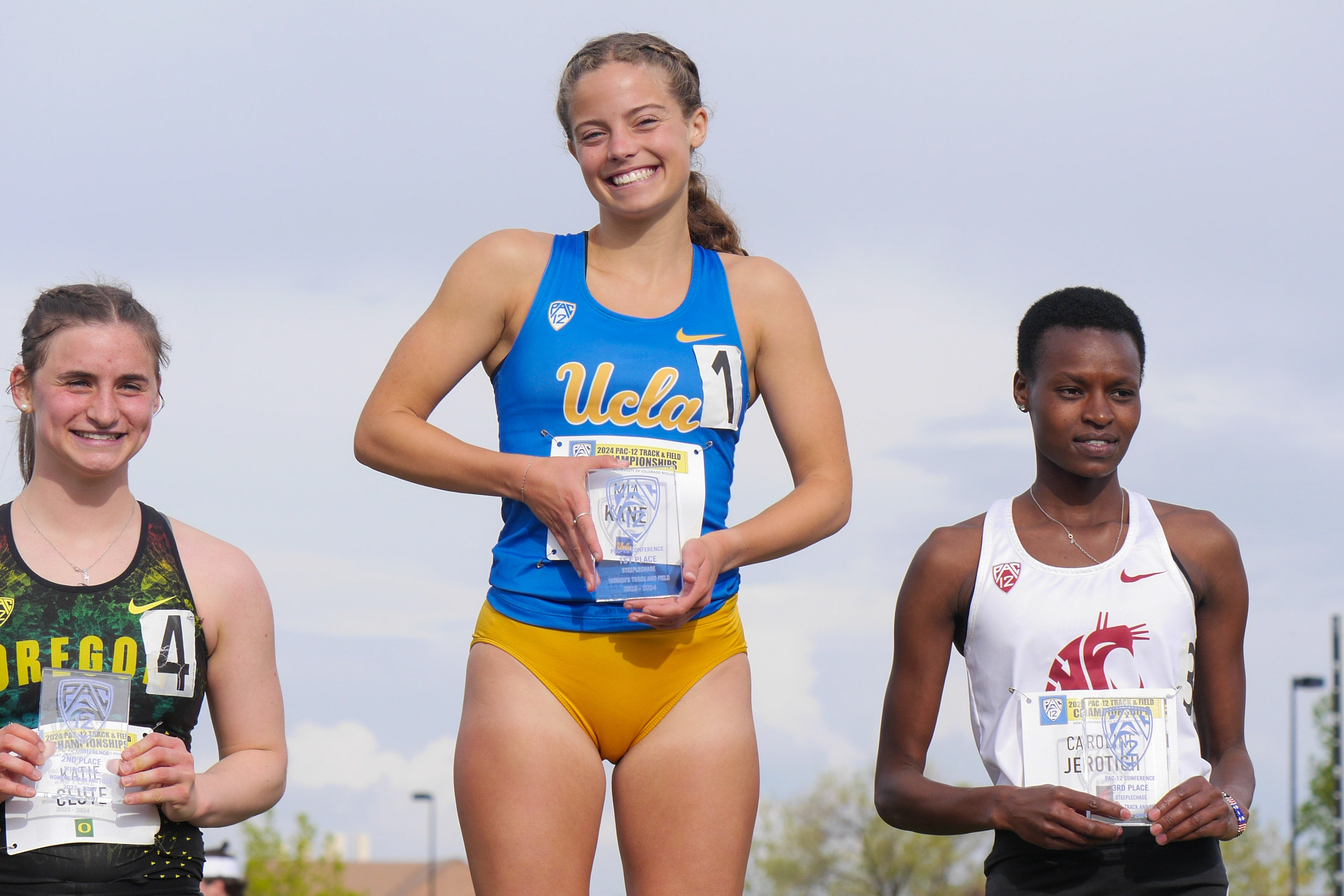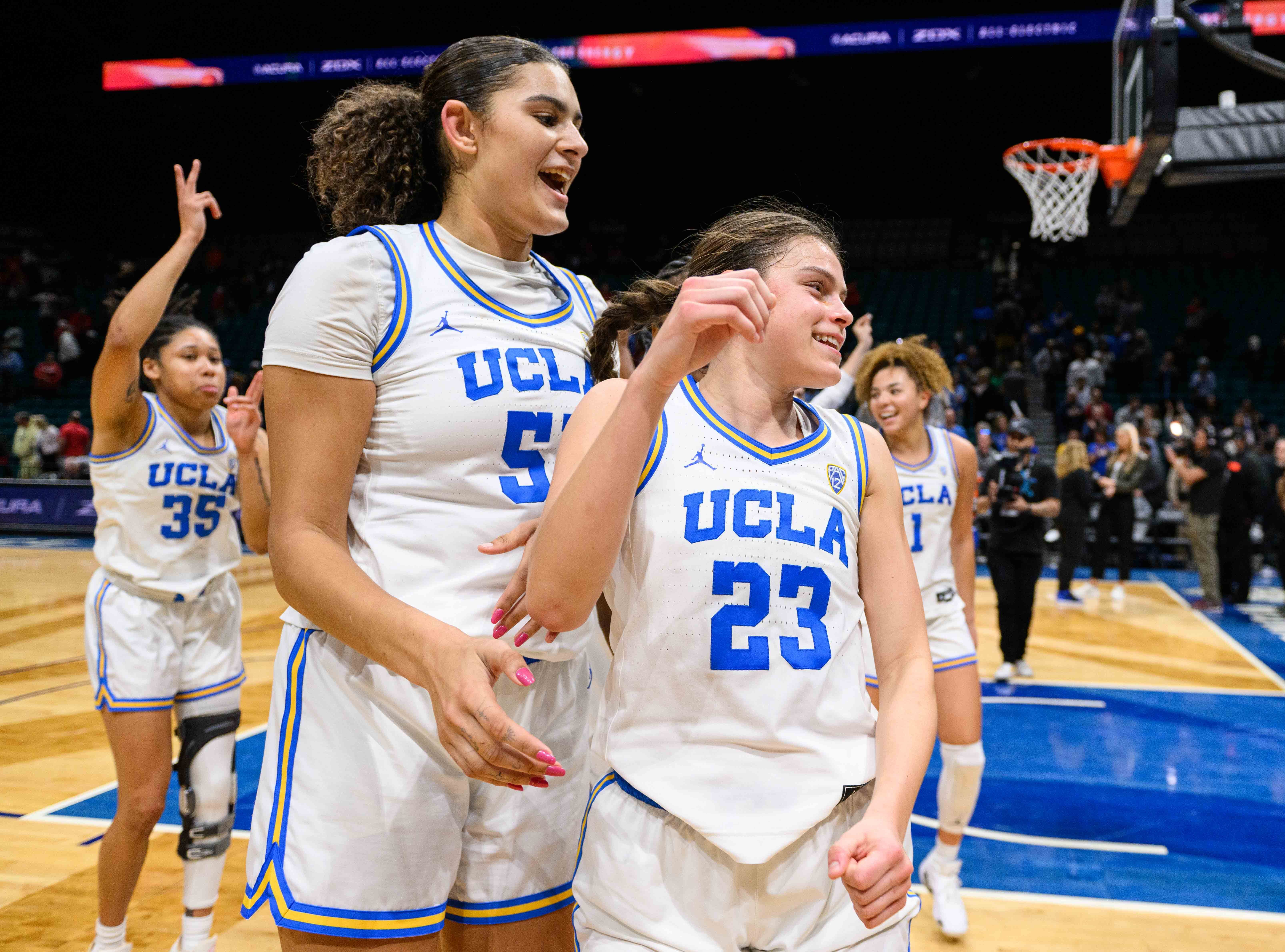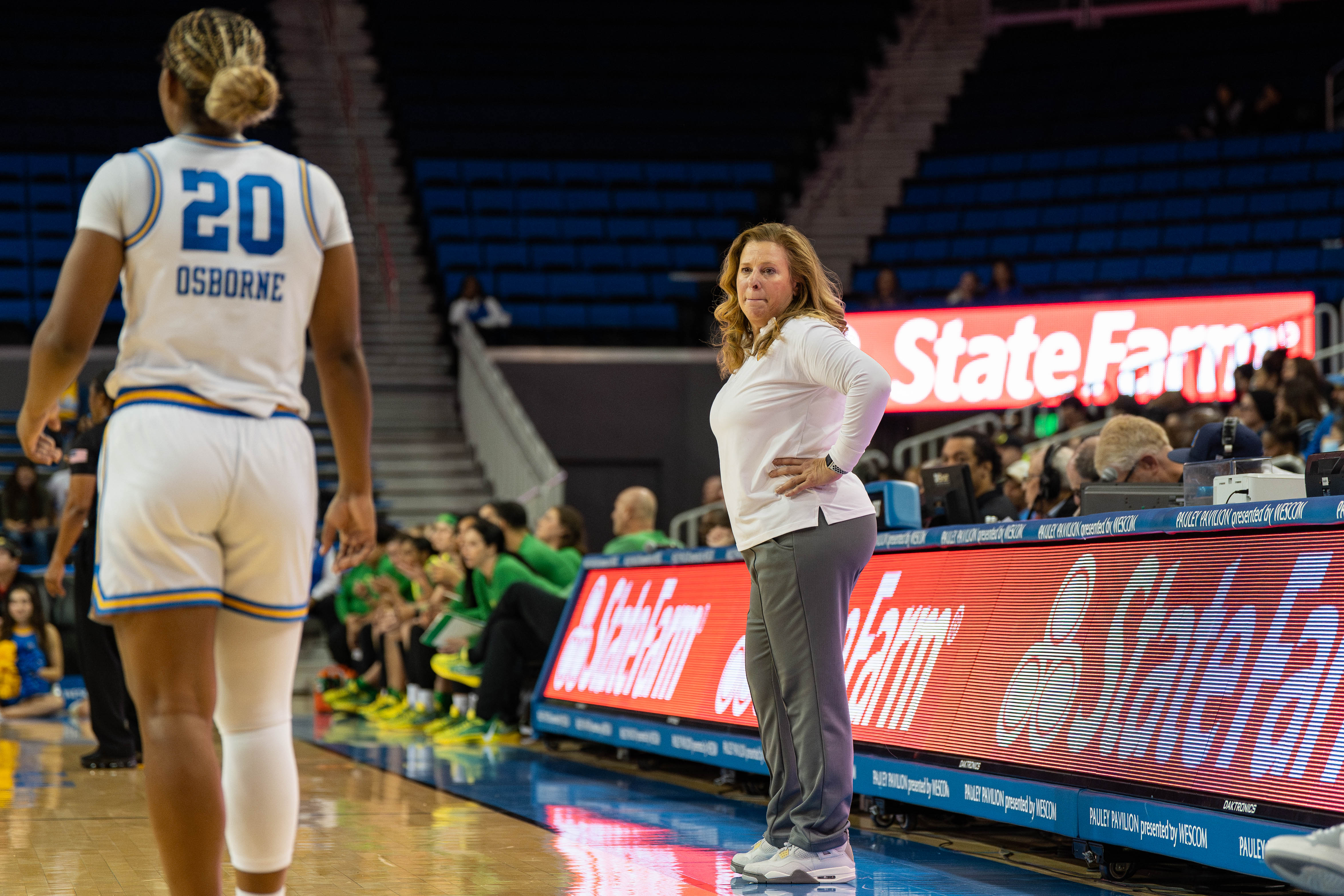‘First Final Four’ claims cover up legacy of UCLA’s legendary AIAW teams

UCLA women’s basketball legend and Hall of Famer Ann Meyers Drysdale, who was the the first four-time All-American and first woman to sign an NBA contract, celebrates after her 1978 Bruin squad won the Association for Intercollegiate Athletics for Women championship. (Courtesy of UCLA Athletics)

By Ira Gorawara
April 4, 2025 11:15 a.m.
Denise Curry was a freshman the first time the Bruins reached the Final Four. A teenager still figuring out where to stand on the court. Sitting alongside already-Olympian Ann Meyers Drysdale may not have helped.
But as the season unfolded, Curry became the face of the Bruins’ frontcourt. And by March 1978, the eventual Hall of Famer had brought the first women’s basketball banner to Pauley Pavilion’s beams.
UCLA women’s basketball won it all that year. The Association for Intercollegiate Athletics for Women national championship. No primetime broadcasts. No corporate commercials. Just 10 Bruins cruising to the AIAW crown in front of a crowd that understood the moment.
Most people today don’t.
So when broadcasters call Friday night’s matchup between coach Cori Close’s No. 1 seed UCLA and No. 2 seed UConn the “first Final Four in program history,” it stings.
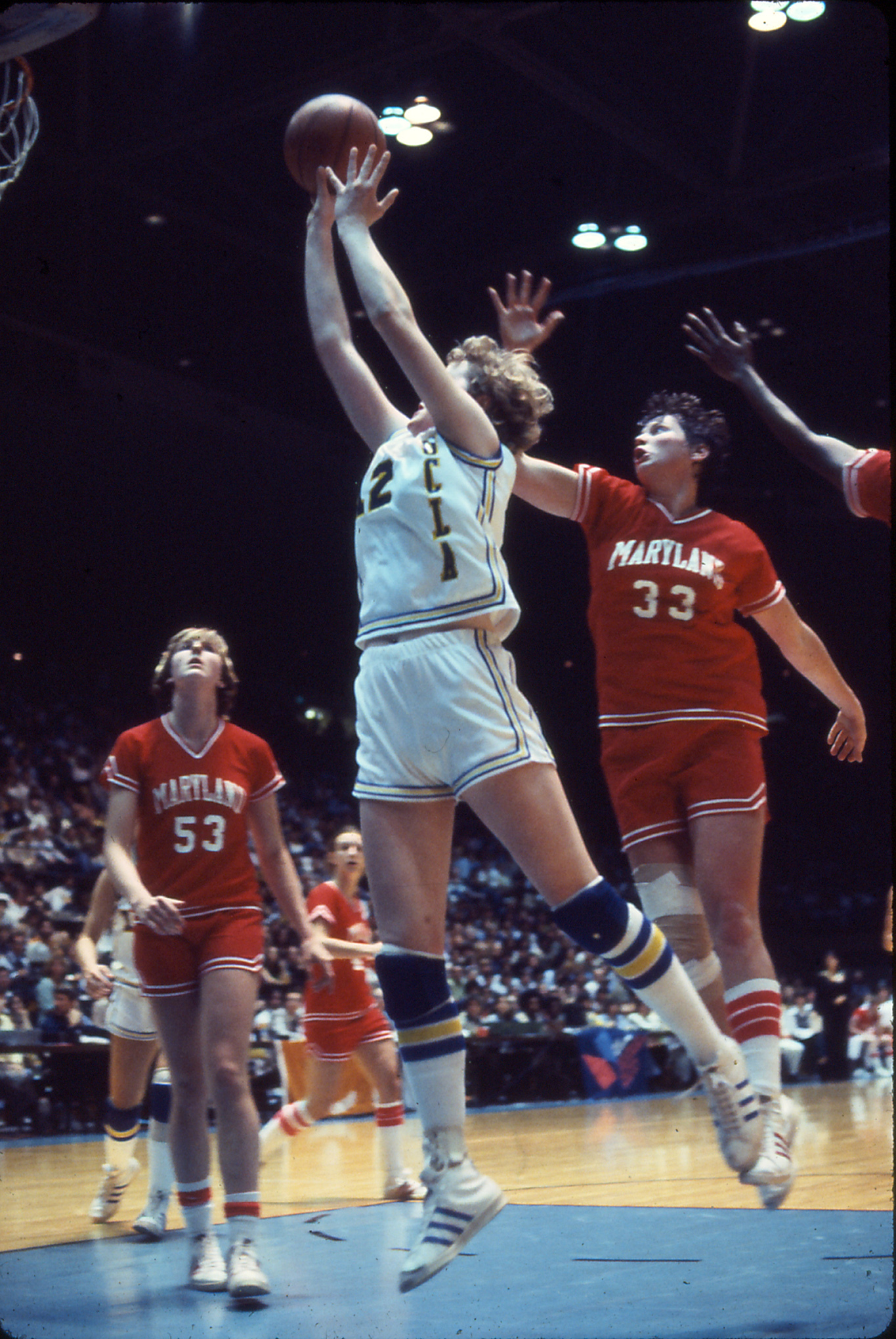
Not because Close’s Bruins aren’t chasing history. Boy, they are. It’s because there’s already a banner that says otherwise.
And to act as though UCLA’s women weren’t champions until the NCAA said they could be is to rewrite history with a red pen that never belonged.
“Some people act like it (AIAW) was intramurals or something – it was just the governing body for women’s intercollegiate athletics,” Curry said. “NCAA wanted nothing to do with women at the time. So that’s that.”
The AIAW ran the show when no one else cared to. But when women’s sports looked profitable, the NCAA swooped in – and history politely pretends it had always been there – in 1982. The women who built the foundation were left to watch their legacy fade in the glare of someone else’s stage lights.
Left in that historical blind spot are teams like the 1978 Bruins – dimmed in the public memory, their triumphs treated like folklore instead of fact.
“Can you say NCAA and are you factually correct that this is their first Final Four? Yes, but it’s not telling the whole story – it’s an omission,” Curry said. “It’s technically correct, it is our first NCAA one, but it isn’t our first – we went to two Final Fours, we won it in ‘78 and then we went back in ‘79. I wish more people just understood that, not just for me and my team, but for every female athlete that competed at the AIAW level.”
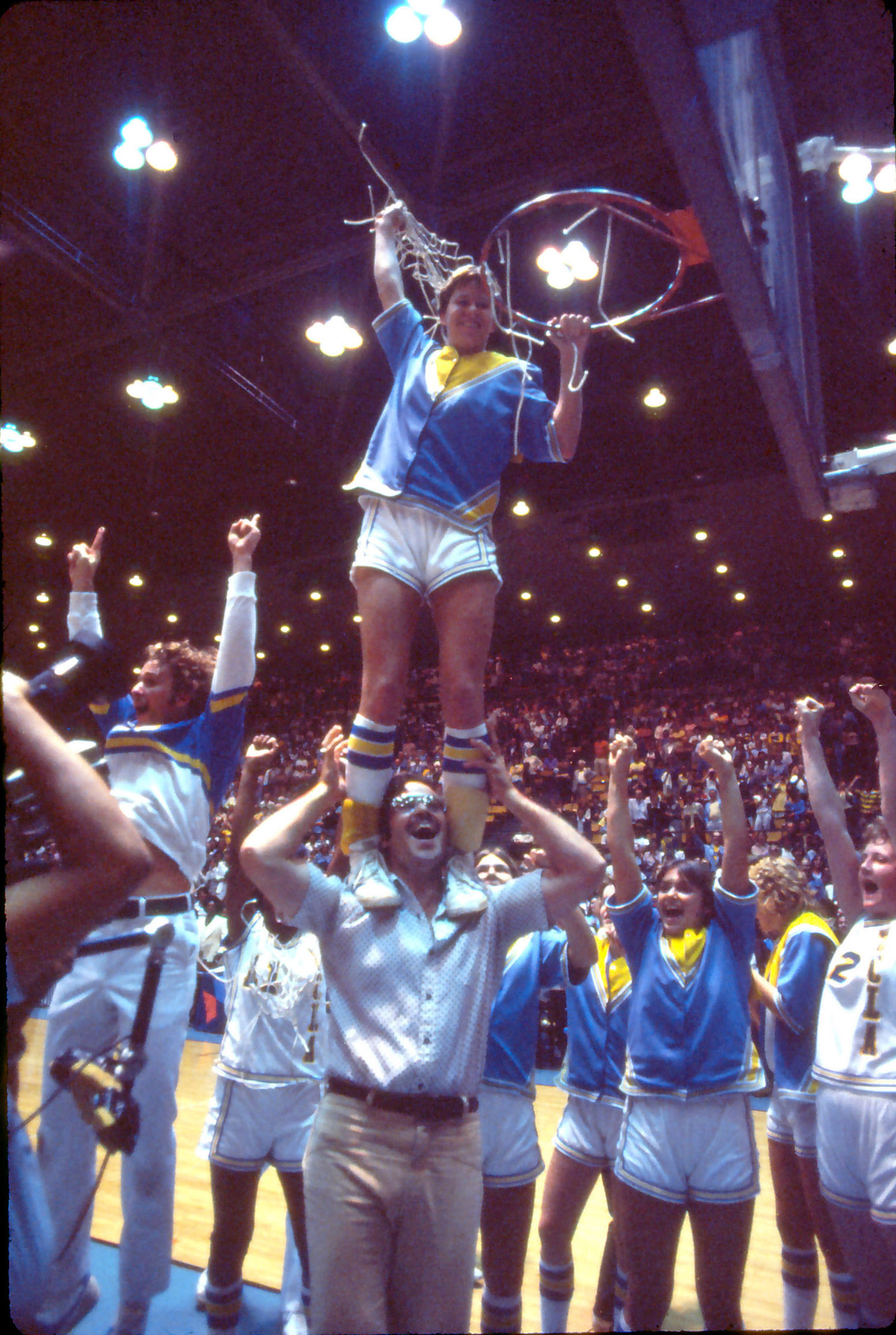
Ahead of Friday’s marquee matchup, Curry wasn’t asking for retroactive applause. If anything, she kept redirecting the spotlight to the current team that spent 12 weeks atop national rankings.
“It’s one of these things where they don’t need to hear from me,” Curry said. “They have great coaches. Cori (Close) is in her 14th year of building this program, and she’s had an exceptional product as far as what she’s put on the basketball court and what she’s done with those young women off the court.”
All she asked was for the story to be told in full – for the roots to be remembered as the sport blossoms into its long-overdue limelight.
Curry has been at Close’s team’s heartbeat this season. She’s attended every home game, traveled to every postseason stop, joined alumni dinners and upheld a cherished tradition: writing a letter from one Bruin generation to the next.
This year, Curry’s recipient was Oregon State transfer, junior forward Timea Gardiner.
“I talked about how extremely excited I was when I found out that she was coming to us because I watched her do her damage against us at Oregon State,” Curry said. “She could probably start for about every other team. So it was more just like, happy you’re here. We need all of you here, all of your skills, everything you bring.”
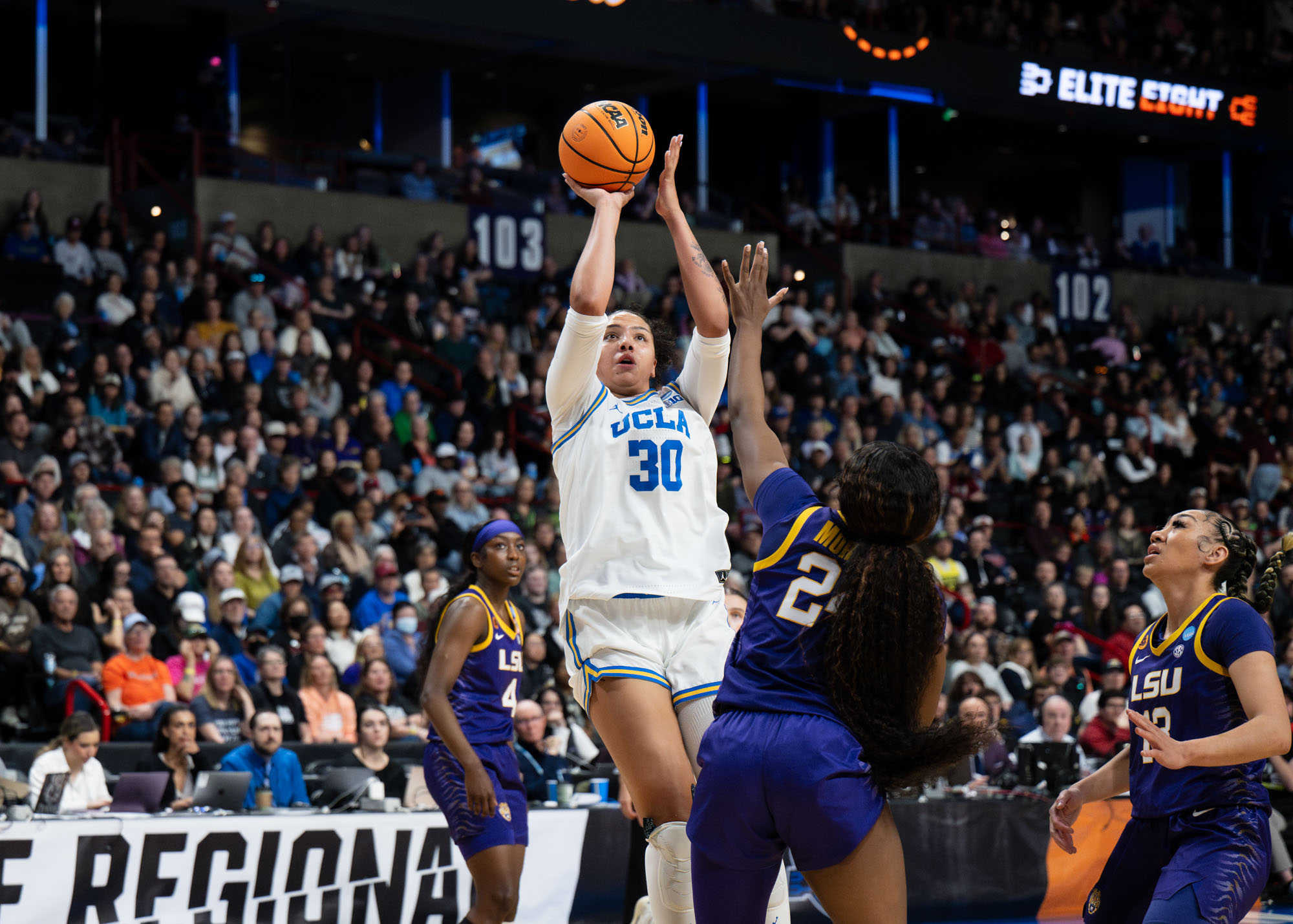
When Curry watches this year’s Bruins, she’s taken back to 1978 – seeing two teams built around trust and a shared refusal to chase the individual spotlight.
Yes, junior center Lauren Betts anchors both ends, and Curry is the first to call her the best two-way player in college. But it’s not just Betts. It’s junior guard Kiki Rice’s command. Junior guard Gabriela Jaquez’s motor. Junior guard Londynn Jones’ quiet defensive grit. Graduate student forward Angela Dugalić’s versatility.
It’s the bench, loaded with players who could start anywhere else but sacrifice for something bigger.
“You don’t get to a Final Four by accident,” Curry said. “This year’s team has a lot of talent, a lot of depth, a lot of versatility and they’ve got good size too, so they can play in a variety of different ways and be very successful.”
They can beat you with power or pace, Curry said – but above all, it’s their selflessness that makes the team special.
And that, she says, is what championship teams are made of.
“Their togetherness is huge,” Curry said. “I don’t think they’d be as successful if they weren’t all rowing the boat in the same direction.”
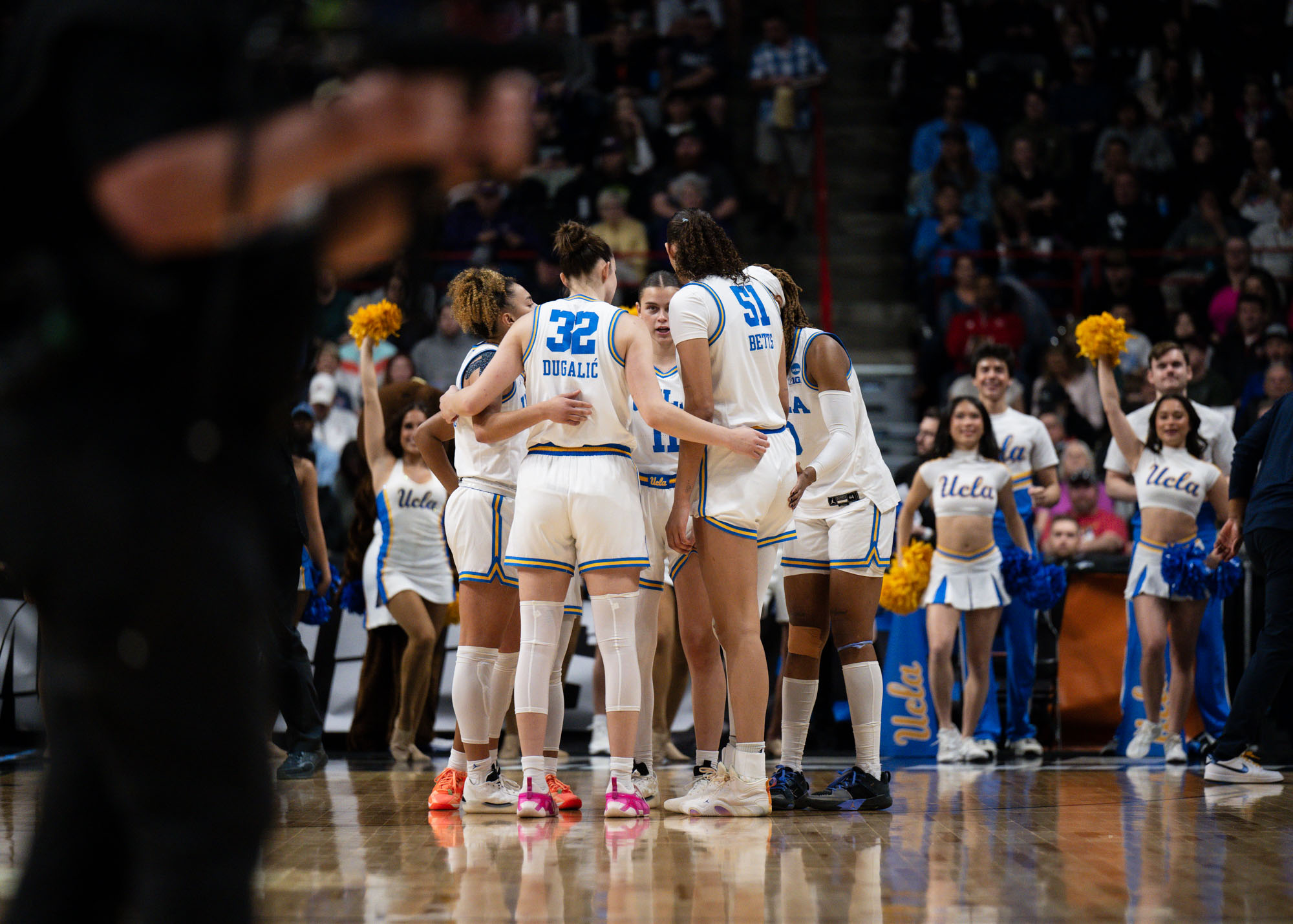
So, the ‘78 team and the 2025 team – echoing a shared set of values – who wins?
Curry didn’t hesitate.
“This year’s team is winning. Oh yeah,” Curry said. “I’m glad we don’t have to play them, to tell you the truth.”
And still, Curry knows the 2025 Bruins carry more than just their own ambitions. They’re carrying a torch lit by every woman who played without camera, crowds or contracts. They’re playing for those who fought for opportunities that this team now thrives in.
The difference now? The world is watching.
“Society has been missing out, companies by not paying attention to (female) athletes and not backing them,” Curry said. “I wish it had happened a little bit sooner. But it’s going to continue to grow and women are going to get more and more opportunity and exposure.”
If the Bruins go all the way – and bring home Westwood’s 125th trophy – Curry said she’ll be ecstatic. Not for herself. Not for 1978.
For the women now carrying the legacy forward.
“These young ladies are exceptional ambassadors for the University of California, Los Angeles – the number one public university in the country,” Curry said. “They make us alums and everybody else I know very proud that they represent us.”
Because while the 1978 banner may be collecting dust in Pauley Pavilion’s rafters, this team is ensuring no one forgets there was one up there to begin with.
And when the lights illuminate Friday night in Tampa, it won’t be the first time UCLA women’s basketball played for everything.
It’ll just be the first time the world truly saw it.



